
TravelingForMiles.com may receive commission from card issuers. Some or all of the card offers that appear on TravelingForMiles.com are from advertisers and may impact how and where card products appear on the site. TravelingForMiles.com does not include all card companies or all available card offers.
This is the third part of my very basic series looking at airline miles/points for people new to the loyalty program world.
On Tuesday I discussed the basics of Collecting Airline Miles & Points
On Wednesday I looked at Valuing Airline Miles & Points (and why you need to)
Today I was going to discuss various, basic, ways you can use your miles but I changed my mind – I’m going to focus on the single biggest pitfall there is when it comes to using your miles and then give you some guidelines to follow. That will be a greater help than a series of suggestions for how to use your miles.
Everything that I discuss in this post will be based on what I was discussing yesterday (the valuation of miles and points) so it may be helpful to read that post before continuing on with this one.
The ‘secret’ of using your miles/points balances effectively is understanding what they’re worth to you and, after that, everything falls into place quite neatly. Once you understand the value of a mile or point you can judge for yourself whether a particular airline redemption is worth doing. More importantly, you can also judge whether all those other ways airlines tempt you to spend your hard-earned miles (hotels, car rentals, merchandise etc.) are genuinely good uses for your miles (they rarely are!).
The biggest pitfall I see travelers falling into surrounds the airlines that charge “surcharges” on their award tickets – for a lot of the airlines the days of free award travel are long gone and this can catch out those who are new to collecting miles/points.
Nowadays it’s very common for an airline to add charges to their award tickets which, when added up, can come to as much (or more) as the price of a Coach seat – these are the awards you should try to avoid where at all possible.
British Airways is famous for it’s surcharges and acts as a great example for the point I’m trying to make:
Let’s take a random set of flights from New York to London as an example. When I price this trip up, in Coach, on a direct flight, for April/May 2015 this is what British Airways offers:
As you can see, on top of the 40,000 Avios that you would need to claim this award, BA is also adding $710 of “taxes, fees and carrier charges” to the award ticket. When you consider that Coach tickets on this route often go for between $800-$900 you can see that this would not be the greatest use of your miles.
To add insult to injury, BA’s US OneWorld partner – American Airlines – will offer you direct flights, on the exact same dates, for 40,000 AAdvantage miles and taxes and fees of just $209.60
The $209.60 that American is charging is primarily made up of taxes and fees levied by the UK government (and to a much lesser extent the US government) so none of that money is going into American’s pockets. BA is subject to the same government taxation as American so, out of their fees, they will be also be handing over around $210 in taxes to the two governments – but that leaves $500 that’s going straight to BA. Why would anyone willingly pay these fees?
There is an added element to all of this that really causes confusion – it’s what happens when you try to book an award with an airline that doesn’t charge “surcharges” and you then select flights on that airline’s partner that does.
Let me explain: Most of the major airlines around the world have entered into partnerships with other airlines to allow them to share costs and to use each other’s networks to expand the options for their fliers. These partnerships are often in the form of alliances (OneWorld, Star Alliance, SkyTeam) but can also be in the form of a simple agreement between two carriers. The net result of this is that you can go to a given airline’s website and be offered award flights on their partners’ planes – and if you’re not paying attention this fact may pass you by.
Let’s go back to the example of British Airways and American Airlines that I was using above:
We’ve seen how, outside of government taxes, American Airlines doesn’t charge surcharges on it’s awards and we’ve seen the opposite with British Airways – but what happens when you go to book an award on British Airways via the American Airlines website?
Logic may tell you that, because you’re using American Airlines’ own currency (AAdvantage miles) and booking through the American Airlines website, you won’t face the hefty British Airways surcharges – but you’d be wrong.
For travel on the same days as in the example above: If I go to AA.com and select flights operated by British Airways this is what I’m offered:
Suddenly, even though I’m using AAdvantage Miles and booking on AA.com the taxes and carrier charges go up to $707.10 – almost exactly the same amount as when I book on BA.
This catches a lot of people out – especially those who aren’t paying attention. Spending AAdvantage miles on American Airlines can be a great way to use your accumulated miles but spending them on BA (or on BA operated flights) is something you should try to avoid if at all possible – you just don’t get value that way (do the math and see for yourself).
This particular example has focused on AA and BA but the same situation can arise on any number of airlines. Pay attention and don’t get caught out – check what airline you’re booking an award with and don’t assume it’s the airline whose website you’re on. It may not be.
A simple set of rules to using your miles:
1) Always check what surcharges an airline will charge – they can destroy the value of an award.
2) As yesterday’s post said, understand the value of your miles. Once you know how much they’re worth to you you’re in a much better position to judge whether it’s worth redeeming for an award to paying with cash.
3) Learn about the mileage program(s) you’re saving with – a traveler who blindly collects in a loyalty program will never get value from it.
4) Don’t assume that a Coach award redemption is a bad redemption – this is a mantra spewed out by way too may bloggers. Do the math, only then make your decision.
5) Airline miles/points will depreciate (usually year-on-year) so don’t hoard them hoping to use them somewhere down the line. When you have a balance large enough to use, use it.

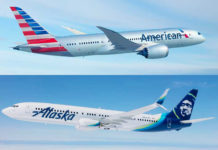

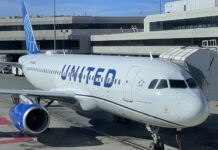


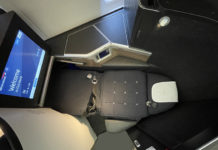
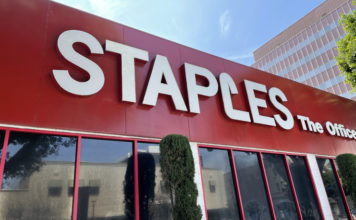
![The ideal 4 card American Express Membership Rewards team [Updated] a glass door with a picture of a man](https://travelingformiles.com/wp-content/uploads/2021/06/Amex-Centurion-Lounge-SFO-featured-741-356x220.jpg)

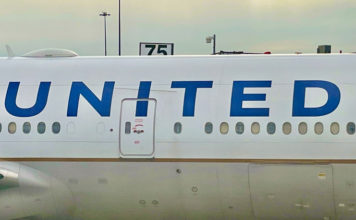







[…] ← Previous Next → […]
[…] Valuing Airline Miles & Points (and why you need to) Using Airline Miles & Points – The Basics […]